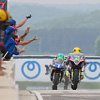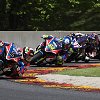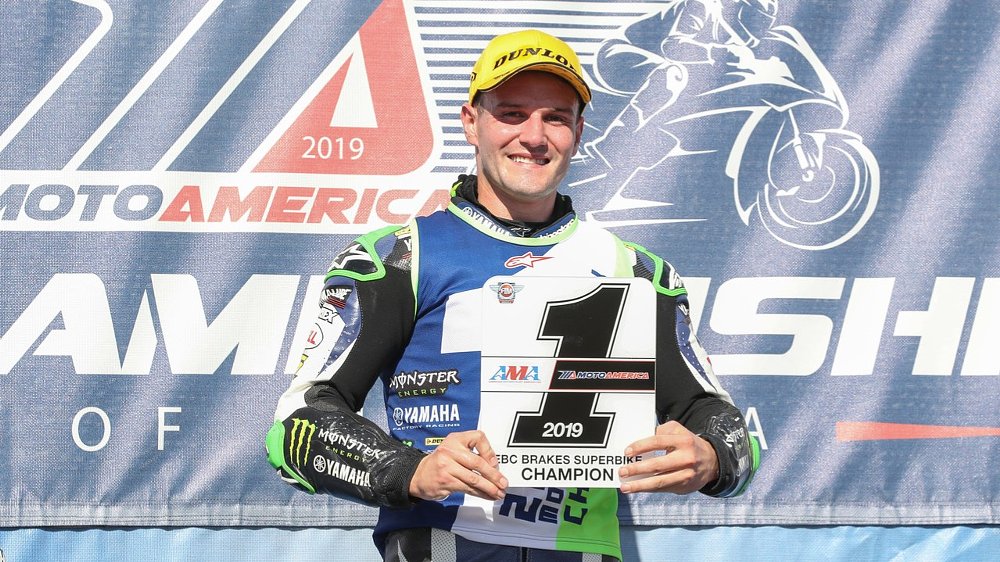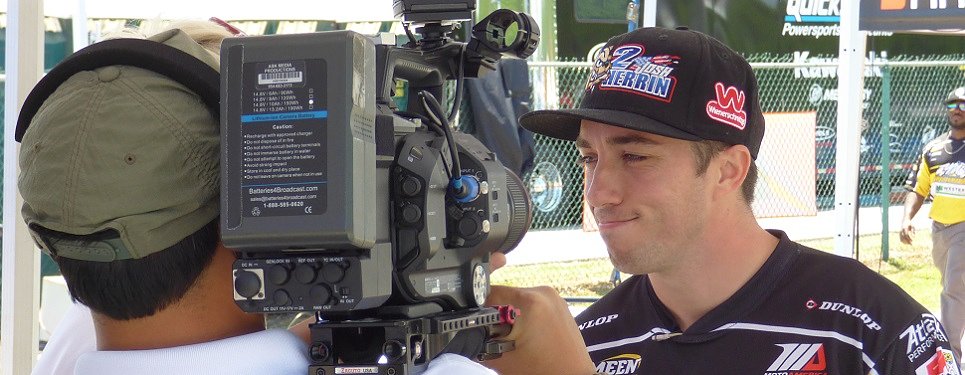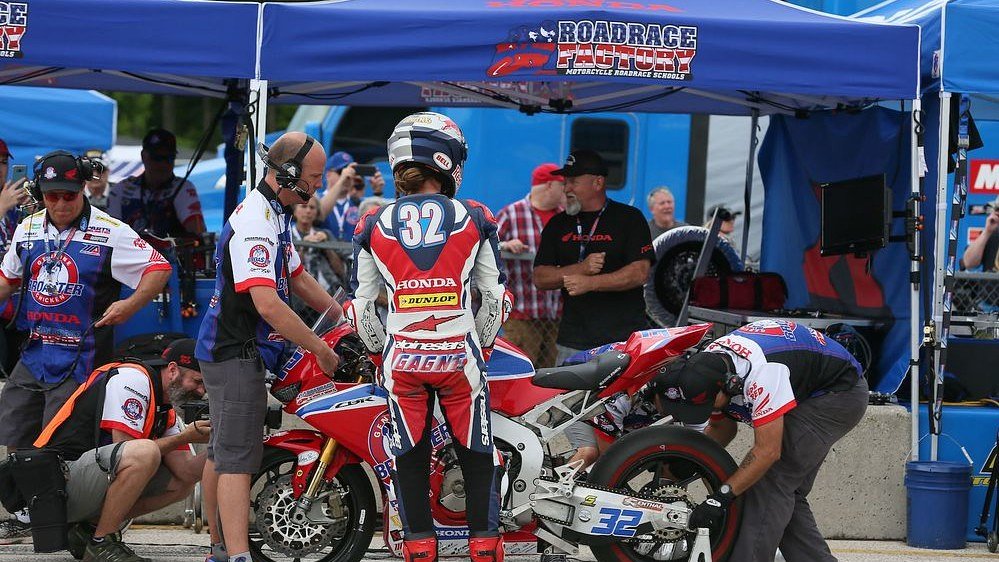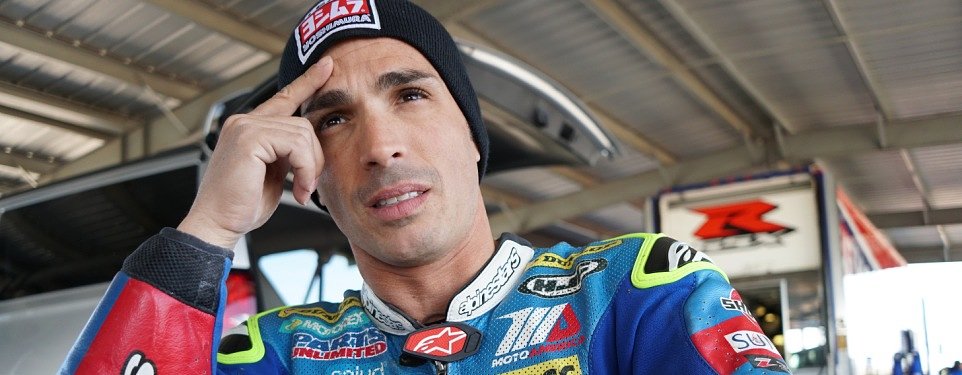After a 41-year collaboration that made Yoshimura Suzuki the most successful team in U.S. Superbike racing, Suzuki has shifted its racing efforts in MotoAmerica to Team Hammer for 2020, a decision announced this weekend that took a lot of people in the race paddock by surprise.
For the 2020 season, Team Hammer, founded by Roadracing World editor John Ulrich and run by his son, former racer Chris Ulrich, will field (presumably two) Suzuki GSX-R1000 Superbikes, as well as entries in the Supersport, Stock 1000 and Twins Cup classes.
The news follows the previous announcement that Yamaha's 2020 MotoAmerica Superbike effort will be run by Richard Stanboli's Attack Performance team.
So here's a stat to chew on: Neither of the two teams that have won 91 of the 96 Superbike races in the MotoAmerica era will be racing in 2020.

End of a successful era
For anyone who has followed U.S. roadracing over recent decades, it's going to take some adjustment to stop saying "Yoshimura Suzuki" any time we reference a GSX-R1000 Superbike. Even MotoAmerica founder Wayne Rainey said, in this video produced to mark the 40th anniversity of Yoshimura Suzuki in 2018, "When I think about Suzuki, or I think about Yoshimura, I always think about them both together."
Yoshimura Suzuki's success in Superbike began with Wes Cooley's championship in 1979, but the peak came 20 years later. In the 11-year period from 1999 through 2009, Yoshimura Suzuki won the AMA Superbike title every year except for one, when Nicky Hayden took the title on a Honda. It was a decade of domination by Mat Mladin and Ben Spies on Suzuki race bikes that may never be matched.
Even after the move by Yamaha earlier this fall to step back its involvement in Superbike racing (following the elimination of the factory team in the Supersport class the year before), the decision by Suzuki to part ways with Yoshimura R&D surprised many and it raised a lot of questions.
What does this say about the state of U.S. roadracing?
I talked to several people connected to MotoAmerica racing and nobody gave me a plausible explanation for Suzuki splitting with Yoshimura R&D other than to reduce costs. That's not to disrespect Team Hammer, which also has a long relationship with Suzuki and has won several championships, including, just this year, Bobby Fong's heroic effort to come back from injury and win the Supersport title and Alex Dumas winning the Twins Cup championship.
Plus, we don't know any details about what level of support Suzuki is providing Team Hammer. But it's just common sense that Suzuki can probably get away with offering less to a team that wants to take over the Superbike effort (Team Hammer) than to the most established and successful team in the history of the series (Yoshimura).
Along with Yamaha scaling back its direct involvement, the changes paint a picture of a racing series and a U.S. motorcycle industry that are too weak to support the level of roadracing competition we saw more than a decade ago. Despite the efforts and very real success of Rainey and his partners to bring U.S. Superbike racing back from its near-death experience in 2014, the environment remains precarious.
Does this mean the 2020 MotoAmerica Superbike grid will be smaller?
Almost certainly.
The consolidation most likely means two top rides in Superbike will disappear. The two Monster Energy Yamaha Superbikes and one Attack Superbike are replaced by two Attack Superbikes and the two Yoshimura rides and one Team Hammer Superbike will be replaced by two Team Hammer spots. Who will be left out? There are three 2019 Suzuki Superbike riders (Toni Elias, Josh Herrin and Jake Lewis) and two 2020 Suzuki Superbike seats. Team Hammer said it will announce its riders later.
On the Yamaha side, defending champion Cameron Beaubier is back, riding for Attack, and his teammate, Garrett Gerloff, secured a ride with the GRT Yamaha WorldSBK Junior Team in World Superbike for next year. Beaubier's teammate will be Jake Gagne, who rode a Honda in MotoAmerica before replacing Nicky Hayden in WSBK for a year after Hayden's death.
The Yamaha rider left without a seat when the music stopped was J.D. Beach, who rode the one Superbike fielded by Attack this year and was the only rider to win a race, other than the four men on Monster Energy Yamaha or Yoshimura Suzuki bikes. Beach recently announced he'll be riding full-time in the American Flat Track series in 2020 for Estenson Racing.
Is any of this good news for independent teams?
If nothing else, it means talent is available, both riders and technicians, as the top teams shrink. The bigger problem for the small guys is the same one the big guys face: Not enough money sloshing around to support all this racing. We've seen some creative approaches from the likes of Kyle Wyman Racing and bootstrap efforts like Scehibe Racing, but it's still hard to keep the team trucks running to the races. We've seen teams like Meen Motorsports and Danny Walker's RoadRace Factory find success on the track but still have to pull out of the series.
There are always rumors going around of someone starting up a new team, and we could see new Superbike rides open up for 2020, but the obstacles are significant.
Does this mean there are no factory Superbike teams?
It's an interesting question, though maybe one that doesn't really matter that much and comes down to definitions. In the domestic series, we have long used the "factory team" label rather loosely. What makes a factory team? If the race bikes are being built by company employees at corporate headquarters instead of an independent team shop? If the riders are paid by the manufacturer instead of the team?
In the end, it's probably a meaningless distinction. If the racing is good, who cares whether the racers ride for "factory" or "independent" teams?
Some criticize the series for not having more factory teams and some criticize it because the privateers don't have a chance against the big factory teams. One thing is certain: Anyone who has complained about MotoAmerica Superbike racing because "the same two teams always win" should take a new look in 2020, because both of those teams are now gone.

Does this mean we won't see Yoshimura Racing any more?
Not necessarily. The news release contained comments from Suzuki executive Kerry Graeber noting that Yoshimura will still be involved with Suzuki's motocross and Supercross programs.
Plus, in roadracing, there's no reason another factory couldn't partner up with Yoshimura to run a Superbike team. Yoshimura worked with Honda and Kawasaki before beginning its long association with Suzuki. If Kawasaki or Honda, or maybe even Aprilia or BMW, wanted to make a splash in MotoAmerica, it's very easy to identify an organization with a proven record of success to run your program for you.
Do I think that's likely? No. For the record, I don't expect that to happen for the reasons stated above about the weakness of the U.S. motorcycle market. While I would love to see what Yoshimura R&D could do in MotoAmerica with the Kawasaki ZX-10R that has won six of the last seven World Superbike titles, I doubt we'll ever find out.





